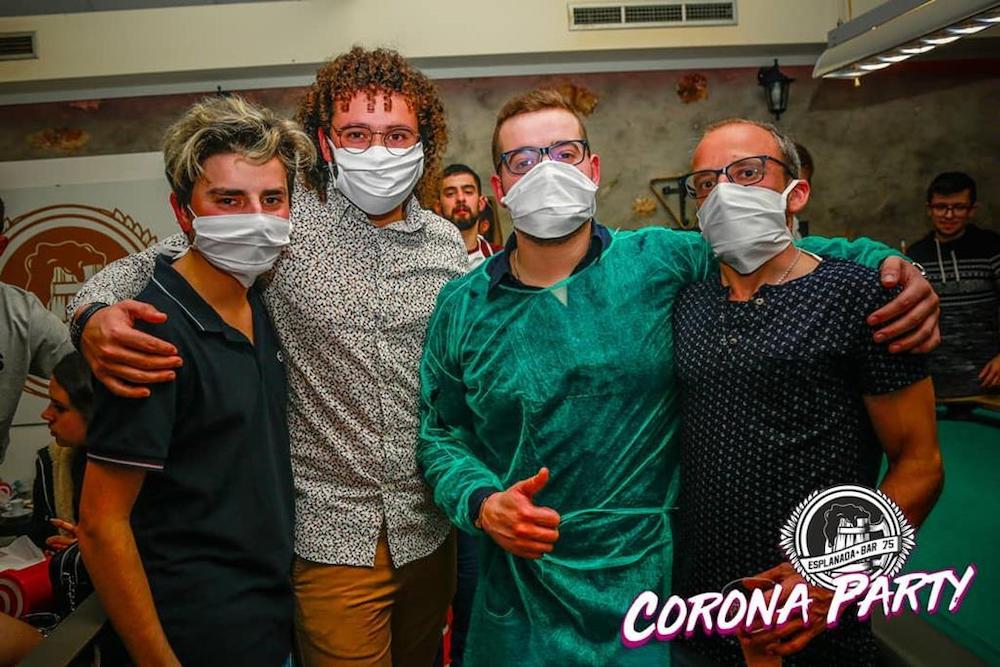At the time of posting, there are 7,443 confirmed cases of coronavirus in Portugal. That’s a lot for a small country of 10 million inhabitants, but not as bad as the neighbouring countries.
In fact, Portugal still has one of the lowest rates of death, ranking between Denmark and Sweden. The peak of the pandemic is expected around mid-April provided residents follow the instructions imposed by the government.
Despite Portugal’s reputation as a country with a “challenging bureaucracy” and a general slow pace of life, the country was quick to take action to contain this pandemic.
It seems like most people were very aware of the reality of what was going on in Italy and Spain, and wanted to avoid something similar at all costs. Even on 12 March, when there were only about 78 confirmed cases of coronavirus in Portugal and the virus was mostly contained in the north, residents of Lisbon were already starting to limit their regular routines such as eating out and going to the gym.
Many were starting to stock up on food, which in the end was not necessary as supermarkets are still open, although with some restrictions. At that time, many companies that didn’t have a work-from-home policy were still somewhat resistant to letting employees go fully remote. However, many were starting to consider the option, already giving permission to some employees to work from their home office.

Of course, not everyone was taking the pandemic seriously at that point, which was evidenced by the “coronavirus-themed” party hosted at a bar in Aveiro in the northern region of Portugal, and the number of university students who flocked to the beach the moment their universities started doing classes exclusively online.
Here’s a brief timeline of how Portugal dealt with COVID-19:
• On 16 March, the government stated that Portugal was on a state of alert until at least April 9.
• On 16 March, flights between Italy, China and Portugal were cancelled, and schools, universities and museums were closed.
• People are asked to call a hotline (808-242-424) if they are exhibiting mild
coronavirus symptoms, rather than go to a hospital, so as to avoid contaminating others. There was a mandatory call for social distancing, with the directive to keep a minimum of one meter between customers in any establishment. Despite that, there were still groups of people gathering at the beach, taking advantage of the warm weather. Bars were still open until 9 p.m.
• Two days later, on March 18, Portuguese officials declared a state of emergency for a minimum of two weeks, and citizens were asked to stay home. Those who were not allowed to work from home were still able to go to work.
• Also on 18 March, airlines started cancelling flights to and from Portugal, even flights that had been scheduled three months in advance.
• On 20 March, those who were tested positive for Covid-19 were on mandatory quarantine, and failure to maintain it is a criminal offense. The rest of the population were not forced to quarantine but officials encouraged them to stay home unless they had to go to work or shop for groceries. Restaurants remained open but only for delivery and take away purposes.
Even now, 1 April, there is no official lock down in Portugal requiring people to have permission to go for essentials such as grocery shopping. Unlike in Italy, residents are still allowed to be outside provided they maintain social distancing and that they only go out when absolutely necessary. People are able to go out to walk their dogs or go for a run provided it’s in their neighbourhood. Most residents respect these rules, but there are still a few who believe that they are above these restrictions and still go on about their day.
There are still small groups of people gathering outside for a beer. However, there are now police patrolling large public spaces including beaches.
THE NEAR FUTURE
Those awaiting important governmental documents such as passports, residence permits or driver’s license were told their existing expired documents are now considered valid until 30 June. As of 1 April, Serviço de Estrangeiros e Fronteiras (the immigration bureau) is still accepting people who already had visa appointments given that these appointments are really hard to come by, and most people have to wait months – at times more than one year – to get an appointment.
Easter is approaching, and it is a big holiday period for Portugal, where many residents travel to their hometown to be with family. Algarve is also a big destination around this time, with many heading down to the beach for a nice sunny break. The government is asking people to limit their travels and to stay where they are, but given the cultural and religious importance of Easter, many are reluctant to do so.
On the evening of 28 March, law enforcers were stopping cars on the Ponte 25 de Abril bridge (the main gateway to Algarve from Lisbon) to ask where they were headed and why.
These measures such as social distancing, limiting travels, police patrol and going into self-quarantine are necessary because hospitals in Portugal won’t be able to support an influx of sick patients. As it is, volunteers are helping repair broken ventilators and other medical equipment. The Portuguese government is taking the necessary precautions to protect the country, and was quick to spring into action.
WHAT COMES NEXT?
Things turned around so fast and it was amazing to see how people adapted. It is unclear how this coronavirus pandemic will change life in Portugal. Many are anticipating another major recession. Businesses are closing down, and many had to lay off their employees already.
Some are wondering about the real estate business, and whether this will bring rent prices down to an acceptable level in Lisbon. Companies who were against having a work from home policy are now seeing that working remotely is actually quite beneficial, with many employees being just as productive at home, if not more.
Whether this type of flexibility in a quite “traditional” work culture will stay in the long run remains to be seen.

About the author:
A graduate of Claremont Graduate University in Claremont, Calif., Liina Edun has a background in psychology and a career in writing and content management.
Having lived most of her life as an expat, she is currently located in Lisbon.
See more on Dispatches here about Portugal.
See our Lisbon archive here.
You can see our daily post here covering what major expats centers are doing to combat coronavirus.














